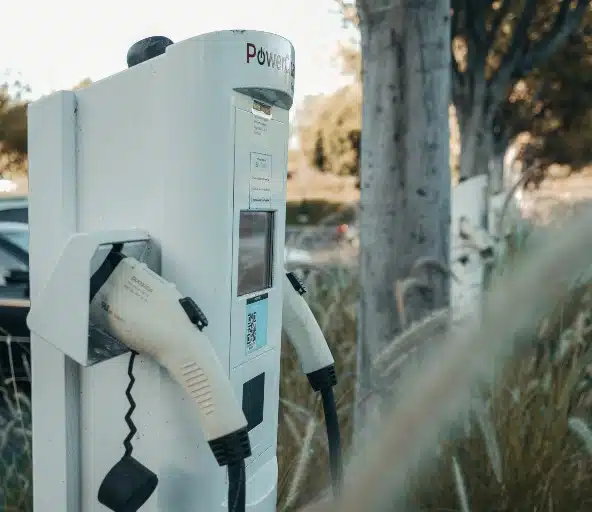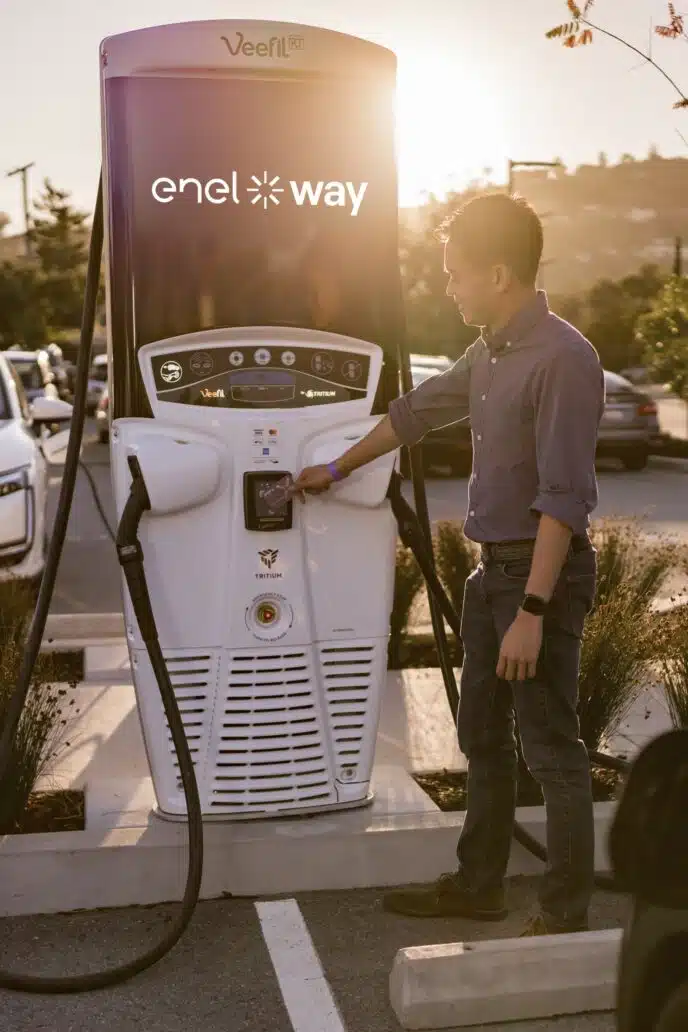Charging A Chevy Bolt
How Long Does It Take to Charge a Bolt EV?
The Chevrolet Bolt EV, when charged using an Level 2 charger, typically takes between 6-10 hours for a full charge from empty. Charging times may vary based on battery usage and charger power output. For faster charging on-the-go, DC fast chargers can reach 80% in about 30 minutes.

Initial Thoughts
Welcome to the Chicago EV blog, where we dive deep into the electrifying world of electric vehicles (EVs) and their charging solutions, especially in the Chicagoland area. Today, we address a common question for Chevrolet Bolt EV owners: “How long does it take to charge?”
Understanding the Chevy Bolt EV
The Chevrolet Bolt EV has positioned itself as one of the stalwarts in the electric vehicle movement, combining affordability with impressive performance metrics. As we delve deeper into understanding this remarkable EV, let’s start with its power source: the battery.
With a battery capacity of approximately 66 kWh (for the 2020 model and onwards), the Bolt EV showcases a marriage between modern technology and efficiency. This capacity gives it a noteworthy range, allowing drivers to travel over 250 miles on a full charge. Such a range brings comfort to drivers, reducing what’s popularly known as “range anxiety”—the fear of running out of charge before reaching one’s destination.
Apart from its commendable range, the Bolt EV also features state-of-the-art tech integrations, like the regenerative braking system. This system helps in conserving energy by converting the vehicle’s kinetic energy back into stored power in the battery during instances of deceleration. Thus, it’s not just about how long you charge, but also how the car itself manages and conserves its energy during drives.

Charging with Enel X Chargers
As the transition to electric vehicles continues to gain momentum, the demand for reliable and efficient charging solutions becomes paramount. Among the leaders in this space is Enel X, known for its commitment to innovation and user experience. By merging state-of-the-art technology with user-centric design, Enel X has carved a niche for itself in the world of EV charging. Here are some key highlights of charging with Enel X:
Speed & Efficiency
Their chargers, especially the JuiceBox, offer Level 2 charging capabilities that dramatically cut down charging durations compared to the standard Level 1 chargers. This means quicker turnaround times and more miles for your daily needs.
Smart Connectivity
Enel X chargers, like the JuiceBox, come equipped with WiFi capabilities. This allows users to monitor and control their charging remotely, schedule charge times, and get insights into their energy consumption via an intuitive mobile app.
Durability
Built to withstand various weather conditions, the Enel X chargers are perfect for the unpredictable climate of the Chicagoland area. Be it scorching summers or icy winters, these chargers promise unwavering performance.
Eco-friendly Compatibility
Enel X chargers are not just efficient but also environmentally conscious. They are designed to seamlessly integrate with renewable energy sources, allowing users to further reduce their carbon footprint and champion green energy.
User-Friendly Interface
The chargers are designed keeping the end-user in mind. Simple plug-and-play functionalities, coupled with an easy-to-understand interface on the app, ensure that even those new to the EV world can navigate the charging process with ease.
Level 1 Charging For the Bolt
Often termed as the most basic form of EV charging, Level 1 utilizes the standard electrical outlets found in most homes and businesses.
- Power Supply: Typically, Level 1 chargers operate on a 120V supply, much like your average home appliance. They generally offer a power output of about 1.4 kW.
- Convenience & Accessibility: One of the major advantages of Level 1 charging is its ubiquitous availability. Almost any standard electrical outlet can be transformed into a charging point. This makes it extremely handy for overnight charging at home or for topping up at a workplace.
- Charging Duration: Being a basic charger, Level 1 takes its time. For a car like the Chevy Bolt EV with its 66 kWh battery, you’re looking at around 45-50 hours for a full charge from empty. It’s perfect for those who drive shorter distances daily and can charge overnight.
- Equipment: Often, the charging cables provided with most EVs are Level 1, requiring no extra equipment or significant installation costs.
Level 2 Charging For the Bolt
Stepping up the game, Level 2 chargers are faster, more powerful, and are commonly found in public charging stations, commercial establishments, and homes.
- Power Supply: Operating on a 240V supply, typical Level 2 chargers can provide power ranging from 3.3 kW to 7.7 kW. High-amperage units like the Enel X JuiceBox can offer up to 9.6 kW, further speeding up the charging process.
- Convenience & Versatility: Level 2 chargers are often wall-mounted and can be installed in garages, parking lots, or commercial spaces. With the added advantage of smart features in models like JuiceBox, users can schedule charging, monitor progress, and even control the process remotely.
- Charging Duration: With its heightened power output, Level 2 chargers can fully charge a Bolt EV in approximately 6-10 hours, making them ideal for overnight home charging or quick top-ups during a workday.
- Equipment: These chargers require a dedicated 240V circuit, similar to what large appliances like ovens use. Installation might require a professional, especially for commercial settings.
DC Fast Charging For the Bolt
The epitome of speed in EV charging, DC fast charging stations are to EVs what gas stations are to traditional vehicles.
- Power Supply: These behemoths can deliver power from 50 kW and go up to 350 kW for ultra-fast chargers, utilizing direct current (DC) as opposed to the alternating current (AC) used in Level 1 and 2.
- Convenience & Application: Mostly found along highways, major transit routes, and dedicated EV charging stations, they are designed for long trips where quick charging is essential.
- Charging Duration: DC fast chargers can replenish about 80% of the Bolt EV’s battery in roughly 30 minutes, making pit stops during long journeys efficient.
- Equipment & Infrastructure: Given their high power output, these chargers demand sophisticated infrastructure, including cooling systems for the cables, making them more expensive to install and maintain.
Final Thoughts
The Chevrolet Bolt EV, combined with an Enel X JuiceBox charger, provides an efficient and convenient charging solution, making it easier than ever for owners in the Chicagoland area to keep their vehicles powered and ready to go. If you’re a commercial establishment looking to support the growing number of EVs on the road or a Bolt owner seeking the best charging solutions, reach out to Chicago EV. We specialize in selling, installing, and servicing commercial EV chargers to keep you moving!
For more insights and information on EV charging and the latest in the world of electric mobility, stay tuned to our ever expanding resource library. Safe and green driving to you all!